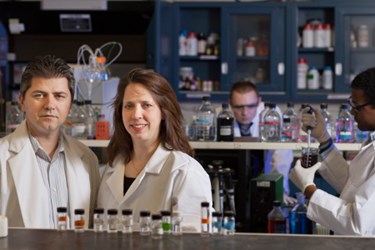A Saliva Test To Diagnose Autism

Researchers have isolated specific biomarkers in salivary proteins that may be indicative of autism spectrum disorder (ASD). While further research is required, the researchers hope to leverage these initial findings to ultimately develop an autism diagnostic test.
Traditionally, doctors have used behavioral patterns and family histories to make an ASD diagnosis. In recent years, however, scientists have been working to find a link between the disorder and biological markers. If such a connection is identified, researchers could develop a diagnostic tool that is more consistent and expedient than current clinical standards.
For the past several years, researchers at Clarkson University and the State University of New York (SUNY) in Plattsburgh have been comparing blood and saliva samples from both autistic and typically developing children, looking to find biomarkers consistent with ASD. Using mass spectrometry, researchers found protein level variances levels in the saliva of children diagnosed with autism, according to a Clarkson University press release.
The study, published in Autism Research, collected saliva samples from a total of 12 children aged 6 to 16. Half the children were clinically diagnosed with autism and the other half were not.
“We found nine proteins that were significantly elevated in the saliva of the people with autism and three that were lower or even absent,” Alisa Woods, professor at Clarkson and SUNY Plattsburgh Center for Neurobehavioral Health and one of the leaders of the study, said in the press release.
Researchers claim that a diagnostic test based on saliva is particularly advantageous because saliva is easy to collect, even from small children.
Before any diagnostic method could be developed, however, the team plans to study a much larger pool of subjects in order to verify their findings and study the protein differences in the various subtypes of autism.
The Autism Research study states, “Our results indicate that this is an effective method for identification of salivary protein biomarkers, support the concept that immune system and gastrointestinal disturbances may be present in individuals with ASDs and point toward the need for larger studies in behaviorally-characterized individuals.”
The researchers acknowledged that early diagnosis and intervention significantly improves functional outcomes in patients diagnosed with ASD and expressed hopes that biomarkers could one day complement behavioral assessments currently in use.
Image credit: Clarkson University
